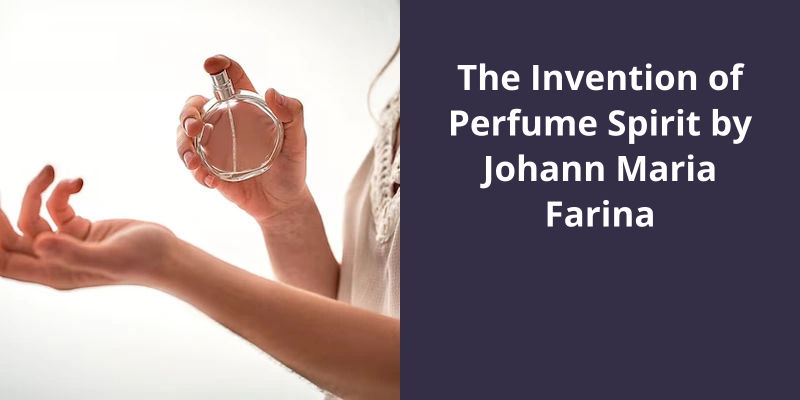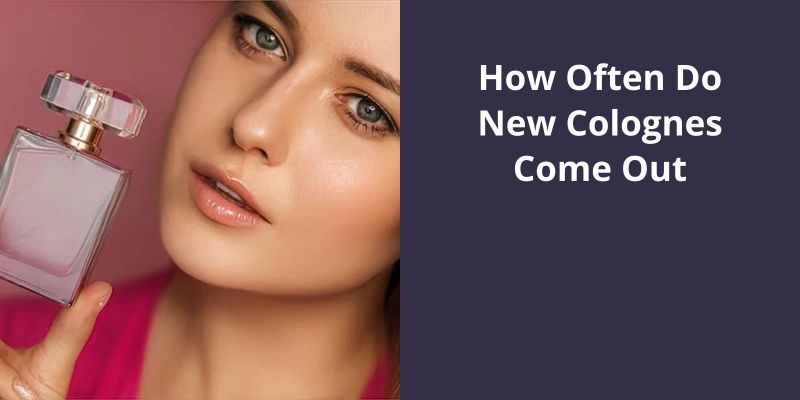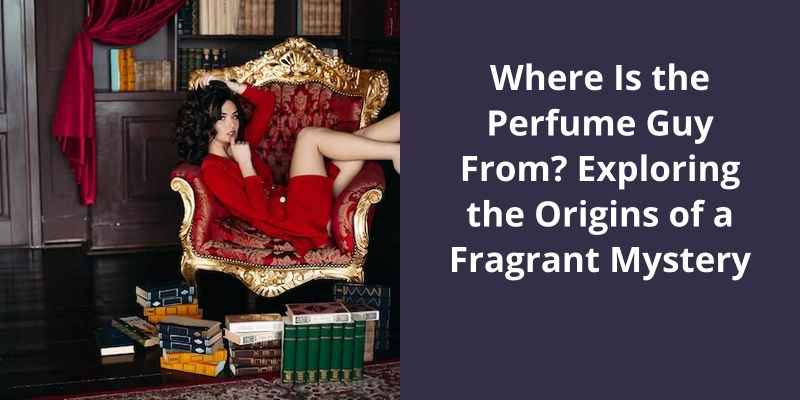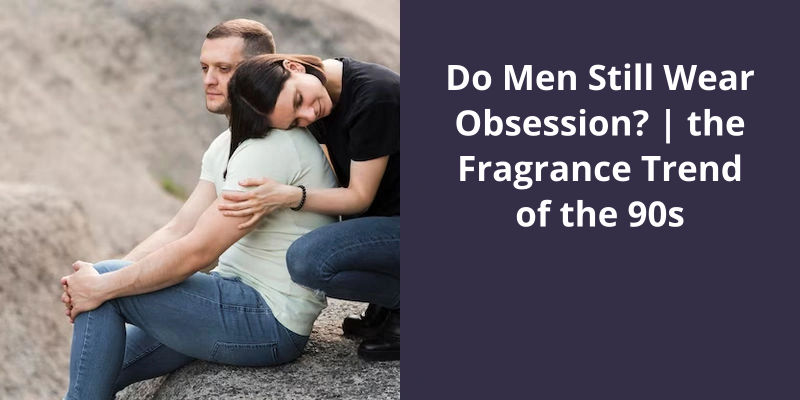The Perfume Spirit was invented by Johann Maria Farina, an Italian perfumer, who moved to Germany in the early 18th century. Farina’s creation was a light, fresh scent, which was remarkably different from the heavy perfumes prevailing at the time. His new fragrance, which he named “Eau de Cologne” after his new hometown Cologne, was a mixture of citrus oils and aromatics that evoked a feeling of a spring morning. Farina’s Eau de Cologne soon skyrocketed in popularity not only in Germany but across Europe, subsequently securing Farina a place in history as the inventor of the first modern perfume, the Perfume Spirit.

Who Were the First People to Use Perfume?
They believed that the smoke carried their prayers and offerings to the gods, so the pleasant aromas were an important aspect of their rituals. From there, the use of fragrant substances gradually spread to other civilizations, such as the Egyptians, Greeks, and Romans.
In ancient Egypt, perfume had a strong connection to their religious beliefs as well. Egyptians would often use scented oils and balms in their rituals, and they even believed that perfumes had magical and healing properties. They’d apply perfume to their bodies and use it as an offering to the gods.
The Greeks and Romans also appreciated the use of perfume, but their approach was more focused on personal hygiene and vanity. They’d bathe in perfumed water, anoint their bodies, and even spray perfume on their clothes. Perfume became a symbol of wealth and status, with extravagant parties and ceremonies dedicated to the love of fragrance.
However, it wasnt until the Middle Ages that perfume truly began to evolve into an art form. The Arab world played a significant role in perfumery during this time, introducing new techniques and ingredients. They developed distillation methods to extract essential oils from plants and spices, revolutionizing the perfume-making process.
Fast forward to the 18th century, when a pivotal moment in perfume history occurred with the invention of Eau de Cologne by Johann Maria Farina. Farina, a perfumer in Cologne, Germany, created a fragrance that combined a blend of citrus oils, herbs, and floral essences. He named it “Eau de Cologne,” after his hometown, and it quickly gained popularity, attracting royal clients and establishing itself as a classic scent. This invention marked a turning point in perfume production and paved the way for the modern fragrance industry.
Today, perfume has become an essential part of our daily lives, connecting us to emotions, memories, and personal expression. From ancient rituals to modern trends, the use of perfume continues to captivate and enchant, carrying a piece of history within each fragrant drop.
The History and Use of Perfume in Different Civilizations and Cultures, Such as Ancient China, India, and the Islamic World.
- Perfume has a long and rich history in various civilizations and cultures.
- Ancient China is known to have extensive use of perfumes, which were often made from flowers and herbs.
- In India, the use of perfume dates back to ancient times, where it was considered an integral part of religious rituals and an expression of spirituality.
- The Islamic world has also played a significant role in the history of perfume, with the development of advanced distillation techniques and the establishment of perfume houses.
- Perfume has been used for various purposes throughout history, including for personal adornment, as a symbol of status, for religious ceremonies, and even for medicinal purposes.
- The art of perfumery has evolved over time, with different civilizations and cultures bringing their unique techniques and traditions.
- Today, perfume continues to be a popular and important industry, with a wide range of fragrances and scents available to suit different preferences and occasions.
Perfume, an art form that’s captivated humanity for centuries, finds it’s origins in the skilled hands of a remarkable woman named Tapputi. As history unveils, a clay tablet discovered in Mesopotamia bears witness to her groundbreaking work as the first recorded perfume maker. Crafted during the second millennium BC, Tapputi’s legacy is a testament to the enduring allure of fragrance and the ingenuity of female chemists of the past.
Who Made the First Perfume?
The invention of perfume has a fascinating history, one that dates back to ancient times. While many may think that perfume was a creation of the modern era, it was actually first crafted by a remarkable woman chemist named Tapputi. Her story has been preserved on a clay tablet discovered in Mesopotamia, shedding light on her pioneering work in the second millennium BC.
Tapputis passion for chemistry led her to experiment with various natural ingredients, seeking to create captivating scents. Her meticulous efforts resulted in the formulation of the first-ever perfume, a groundbreaking achievement that revolutionized the world of fragrances.
The Ingredients Used in the First Perfume: This Topic Could Delve Into the Specific Natural Ingredients That Tapputi Used in Her Perfume, Exploring Their Properties and Significance in Ancient Times.
In the creation of the first perfume, Johann Maria Farina used a variety of natural ingredients. These ingredients were carefully selected for their distinct properties and significance in ancient times. They included an array of botanical extracts and essential oils, sourced from plants and flowers found in nature. The combination of these ingredients resulted in a unique fragrance, known as perfume spirit, which captivated people’s senses and paved the way for the art of perfumery.
During the 18th century, Italian perfumer Giovanni Maria Farina created a fragrance blend known as Eau de Cologne. This lighter scent, consisting of 2% – 4% perfume oils mixed with alcohol and water, was specifically designed for the royal courts of Europe. Interestingly, the word “cologne” itself is derived from the German city of Cologne, where Farina was residing when he invented this iconic perfume.
Who Invented Cologne Perfume?
Johann Maria Farina, an Italian perfumer, is credited with the invention of Cologne perfume, also known as Eau de Cologne. This concoction, consisting of 2% – 4% perfume oils diluted in a combination of alcohol and water, was specifically created for the royal courts of Europe in the 18th century. The word “cologne” itself derives from the German city of Cologne, where Farina resided during his groundbreaking creation.
Farinas perfume spirit was a revolutionary departure from the heavy and overpowering fragrances commonly worn during that era. Seeking to create a lighter and more refreshing scent, he carefully blended various natural ingredients, resulting in a delicate and invigorating aroma that captured the attention of European nobility.
The invention of Cologne perfume introduced a new era of fragrance, with it’s exquisite and harmonious blend of scents. The revitalizing notes of citrus, such as bergamot, lemon, and orange, along with hints of herbs and floral essences, set it apart from traditional perfumes.
To this day, the invention of Perfume Spirit by Johann Maria Farina remains an iconic moment in the world of perfumery. The legacy of his Cologne perfume endures, with countless variations and interpretations inspired by his original creation.
The History of Perfume: Explore the Origins and Development of Perfumes Throughout History, Including How They Were Used and the Different Ingredients That Were Commonly Used.
The history of perfume is a fascinating journey that spans thousands of years. Perfumes have been used by civilizations across the globe for various purposes, including religious ceremonies, personal adornment, and to mask unpleasant odors.
One of the earliest known civilizations to use perfume was ancient Egypt. They were known for their advanced knowledge of fragrances and used a wide variety of ingredients such as flowers, spices, and resins to create their perfumes. Perfumes were seen as a luxury and were popular among the upper class.
In ancient Rome, perfumes played a significant role in their society. They were used not only for personal grooming but also for medicinal purposes. Perfumes were also used in bathhouses to create a pleasant atmosphere.
During the Middle Ages, perfume production declined in Europe, but it flourished in the Islamic world. Islamic perfumers were known for their skill in distillation techniques and experimentation with different ingredients. Perfume production eventually made it’s way back to Europe during the Renaissance.
In the 18th century, a groundbreaking invention took place in Germany. Johann Maria Farina created the first modern perfume, which he named “Eau de Cologne” or “Perfume Spirit.” This innovation led to the birth of the modern fragrance industry. Farina’s perfume was made from a mixture of citrus oils, herbs, and floral essences.
Over time, perfumes have evolved to include a wide range of scents and ingredients. Natural ingredients, such as flowers, spices, and woods, are still commonly used, but synthetic compounds have also become prevalent in modern perfumery.
Today, perfumes continue to play a significant role in our lives. They’re used for personal expression, to evoke memories, and to enhance our overall well-being. The art of perfume-making continues to innovate, combining both science and art to create unique and captivating fragrances.
Source: Eau de Cologne
During the second millennium BC, the early perfume scents were primarily composed of incense and myrrh, which were highly valued for their aromatic properties. However, it was during this time that Tapputi, the first recorded perfumer from Babylon, emerged. Tapputi innovated the art of perfume-making by distilling flowers, oils, and other aromatic compounds. Through a meticulous process of filtration and multiple distillations, she was able to create captivating scents that would later shape the world of perfumery as we know it.
What Were the Early Perfume Scents?
In the early days of perfumery, the scents that adorned the air were quite different from what we know today. The fragrance of that time was dominated by ingredients such as incense and myrrh, which gave a rich and exotic aroma to the surroundings. These fragrances were highly valuable and were often associated with religious rituals and ceremonies.
One of the earliest recorded perfumers in history was Tapputi, hailing from Babylon in the 2nd millennium BC. Tapputi was renowned for her skill in distilling flowers, oils, and other aromatic compounds. She carefully filtered these ingredients and then placed them back into the still multiple times, to create unique and alluring scents.
The use of flowers in perfumery can be traced back to ancient civilizations such as Egypt, where different types of flowers were distilled to extract their aromatic essence. These floral scents were highly sought after and were often used as offerings to deities or to mask unpleasant odors.
In addition to floral scents, perfumers in ancient times also experimented with various other ingredients to create unique fragrances. Resins, spices, and woods were often incorporated into perfumes to add depth and complexity to the scent. These perfumes were highly prized and were considered a luxury item, often reserved for the elite and the wealthy.
However, it was not until the Renaissance period in Europe that perfumery truly flourished and gained wide popularity. During this time, innovative techniques for extracting and blending scents were developed, leading to the creation of iconic perfumes that are still celebrated today.
One such iconic perfume is the “Eau de Cologne,” which was invented by Johann Maria Farina in the 18th century. Farina, a perfumer based in Cologne, Germany, created a fragrance that captured the essence of fresh citrus fruits, florals, and herbs. His invention, known as the Perfume Spirit, became a sensation and laid the foundation for the modern cologne industry. The Perfume Spirit was renowned for it’s refreshing and invigorating scent, making it a favorite among both men and women.
The Role of Perfumes in Religious Rituals and Ceremonies in Ancient Civilizations
In ancient civilizations, perfumes played a significant role in religious rituals and ceremonies. The use of aromatic substances, such as incense, oils, and fragrant herbs, was believed to be a way to connect with the divine and enhance spiritual experiences.
Perfumes were often used in religious practices to purify, cleanse, and sanctify sacred spaces and objects. The sweet and pleasant scents were thought to create an atmosphere conducive to prayer, meditation, and communication with the gods.
In some ancient civilizations, priests and priestesses were responsible for creating and applying perfumes during ceremonies. These individuals had a deep understanding of the symbolic and healing properties of different fragrances and would carefully select and blend them for specific rituals.
Perfumes were also used to honor deities and offer them gifts. The pleasing aromas were considered a way to show reverence and gratitude, as well as to attract the attention and favor of the gods.
Overall, perfumes served as a sensory bridge between the human and divine realms and were an integral part of religious life in ancient civilizations.
Perfume bottles, crafted to contain enticing scents, have a rich history dating back to ancient times. One of the earliest examples traces back to the Egyptians around 1000 BC. Renowned for their opulent use of fragrances, particularly in religious ceremonies, the Egyptians embraced the invention of glass and utilized it extensively to fashion enchanting perfume vessels.
What Was the First Perfume Bottle?
The first perfume bottle can be traced back to ancient Egyptian civilization, around 1000 BC. The Egyptians had a deep appreciation for scents and used them extensively in religious ceremonies. With the invention of glass, they began creating vessels specifically designed to hold perfumes. These early perfume bottles were exquisite works of art, reflecting the Egyptians love for beauty and luxury.
Egyptian perfume bottles weren’t limited to holding perfumes alone. They were also used to store various oils and scented liquids, which were believed to have healing properties. The bottles served as vessels for carrying these precious substances and were revered in religious rituals.
Today, perfume bottles continue to be an essential element of the fragrance industry. They come in a variety of shapes, sizes, and materials, catering to diverse consumer preferences.
Farina Original Eau de Cologne, known for it’s timeless appeal and superior quality, captivates with it’s harmonious blend of ingredients. Crafted with utmost care, this exquisite fragrance features a combination of alcohol, water, and a unique fragrance composition. With notes of Alpha-Isomethyl Ionone, Butylphenyl Methylpropional, Citronellol, Citral, Eugenol, Geraniol, Limonene, and Linalool, Farina Cologne is a testament to the brand’s dedication to delivering a luxurious olfactory experience. With it’s rich heritage dating back to 1709, Farina continues to impress fragrance enthusiasts from around the world.
What Are the Ingredients in Farina Cologne?
The invention of Perfume Spirit by Johann Maria Farina revolutionized the world of fragrance. Farina cologne is renowned for it’s unique and unforgettable scent that’s captured the hearts of many for centuries. But what exactly are the ingredients that make up this iconic fragrance?
Farina Original Eau de Cologne is crafted using a carefully curated blend of high-quality ingredients. The main component is alcohol, which serves as the base for the fragrance. It helps to disperse the aromatic molecules and create a long-lasting scent.
Aqua, or water, is another essential ingredient in Farina cologne. It not only dilutes the perfume but also adds a refreshing and invigorating touch to the overall composition.
The fragrance itself, or parfum, is a blend of various natural and synthetic ingredients. It’s the heart and soul of the cologne, giving it it’s distinctive aroma.
Some of the specific ingredients used in Farina cologne include Alpha-Isomethyl Ionone, Butylphenyl Methylpropional, Citronellol, Citral, Eugenol, Geraniol, Limonene, and Linalool. These ingredients contribute to the complexity and depth of the fragrance, adding nuances that make it truly unique.
Conclusion
Developed by Farina in the 18th century, this spirit-citrus fragrance revolutionized the perfume industry and continues to be iconic to this day. It’s creation in Cologne, Germany by an Italian perfumer showcases the global nature and cross-cultural influences of the perfume trade during that time. The fact that Farina hailed from Santa Maria Maggiore in Valle Vigezzo further adds to the intriguing narrative behind this invention. As we appreciate the enduring legacy of the Eau de Cologne, we’re reminded of the timeless beauty and artistry that emanates from the genius of Johann Maria Farina.





